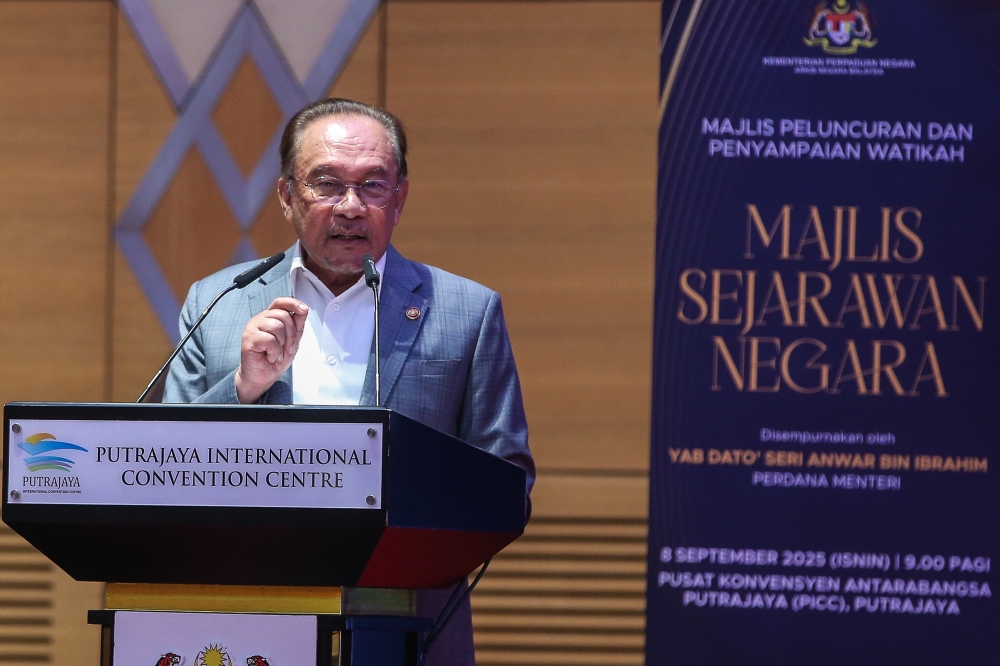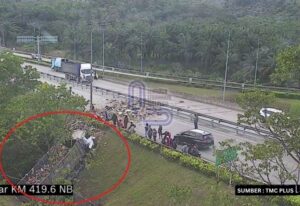PUTRAJAYA, Sept 8 — Prime Minister Datuk Seri Anwar Ibrahim has called for Malaysia to strengthen its approach to historiography, warning that weakening reading habits and declining interest in history pose a serious challenge to the nation’s cultural identity.
Speaking at the launch of the National Historians’ Council, Anwar said historiography, the study and critique of how history is written, is crucial not only for understanding the past but also for questioning and interpreting it more deeply.
“I feel that the time has come for Malaysia to build strength in this field. I do not think this is something new, nor do I want anyone to say that this gathering is merely an early attempt to ‘set Malaysia’s history straight’. In fact, there are already many earlier works that support this concept.
“Our task is to consolidate these strengths, to engage in dialogue with all parties, and then to provide advice to the government on the steps that should be taken,” he said during his speech.
He then emphasised the need for balance, noting that today’s generation is grappling with challenges such as a diminishing reading habit and waning interest in history.
While he acknowledged this as a troubling trend, he explained that it should not mean neglecting advancements in technology, digital transformation, artificial intelligence, or mathematics.
“These are all important. At the same time, we are human beings with our own culture and identity. These cannot be separated from history, literature, and culture. Therefore, there must be safeguards to ensure we do not drift along with currents of development that are, in fact, unhealthy,” he added.
The prime minister also said that the task would not be easy, pointing to the strong influence of global narratives and social media.
Malaysia, he argued, must build a strong national narrative that could overcome these pressures and nurture historical literacy among the younger generation.
“Not everyone needs to study history formally, but our system must nurture interest in it. The National Archives and museums certainly have an important role, but their explanations and presentations must be more active.
“Every time I visit, there are many exhibitions. Schoolchildren often come, but there is little effort by educators to bring these exhibitions to life in an engaging way. They should be given simple, inspiring materials, small pamphlets they can take home,” he said.
Anwar also noted the lack of training for civil servants, teachers and educators to foster a love of history, literature and culture are among the longstanding weaknesses in Malaysia’s governance tradition.






